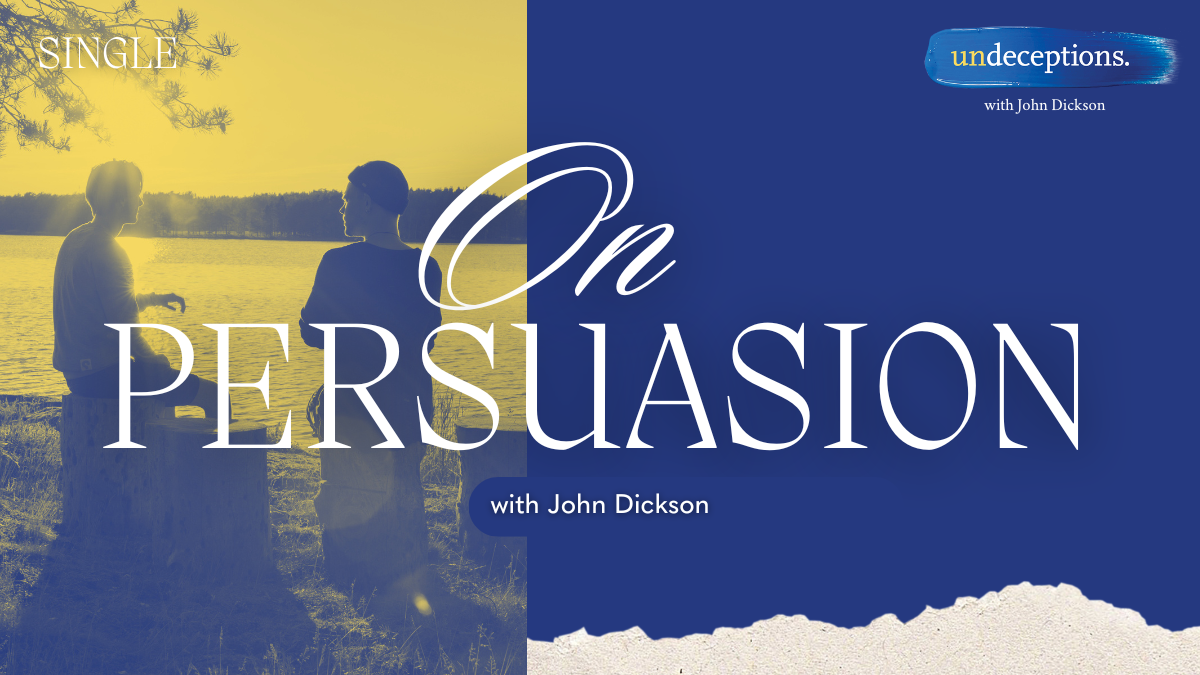It’s perhaps odd to begin a Christmas reflection with an insight from the Buddha. But Siddhārtha Gautama said something I find really compelling and apt for this time of year.
“It’s sometimes in the happiest moments,” he said, “that sadness pierces through.”
Buddhism, of course, goes much further than that and includes happiness itself in its definition of suffering – because even joy is transitory, vulnerable to sadness.
I can’t quite go that far, but there’s something in it. There is so much to be happy about in this Christmas period: the gifts, the food, family reunions, holidays, and (for some) the spiritual meaning of the season.
But many of us also catch ourselves pondering the sadness of this time of year. Feeling alone in a crowd; feeling pity for others in our midst who don’t have the plenty that we do; maybe feeling regret when we’re with the people we love best because of the way they’ve treated us or we’ve treated them.
John Keats, the poet, once said, “Ay, in the very temple of delight, Veil’d Melancholy has her sovran [sovereign] shrine.”
There’s sadness amidst the joy.
ABC journalist Julia Baird once made a similar point in a Christmas piece she wrote, noting that the world has taken some very strange turns in recent years. This happy period is also a time for melancholy.
She writes, “Here in coastal Australia, our streets are studded with opening frangipani. The air is thick with heat and salt, school uniforms folded away for the year and a sticky summer awaits. But an odd feeling of impotent despair has infected our conversations and celebrations: Aleppo, Brexit, climate change, fracturing, global accord, partisan ugliness, and an atmosphere of cheap shots and short-term gain. Gut has triumphed over grace.”
Her answer to the dilemma is found in the title of her article: We must strive to find our own peace in a brutal world.
She offers some nice examples: listening to the wind in the trees, marvelling at a child’s play, wondering at the beauty of music, enjoying the splash of the ocean against the skin.
God has stepped onto the world stage at the lowest point on earth. An infant squeezed out of a guest room, relegated to the area for animals. It’s the bottom of the world.
Baird doesn’t quite offer this as a resolution. She merely urges us to let life small joys pierce the sadness, just as the sadness often pierces the joy. As a daily coping strategy, I like it. It’s certainly more Christian than Buddhist to allow life’s pleasures to point us to something beyond.
But of course, Christmas invites us to something much deeper and I suspect Julia Baird knows this Christmas. Isn’t about wrapping up a strange and troubling year with a festival of simple human pleasures. Traditionally Christmas is about joy piercing the sadness, fully and forever.
AD1 was every bit as mixed and weird as 2019.
Mary and her little family might not have had Aleppo, Brexit, partisan ugliness and all the rest of it. But they did have Emperor Augustus flexing his muscles in a worldwide census designed to extract more tax and tighten his grip on his vassal states. And they had the brutality of Herod the Great, a man who got rid of his own offspring on a hunch and thought nothing of doing the same to the infants of Bethlehem.
Then there was the unplanned and scandalous pregnancy, together with their 120 kilometre journey from Nazareth to Bethlehem – probably on foot with all due respect to the donkey of the Christmas cards. And when they arrived, there’s no room. There’s a manger. The whole story is very strange, very mixed: sadness and joy lie side by side. The gospel writers seem to emphasise the strangeness by repeating the words ‘in a manger’ … ‘in a manger’.
The phrase appears three times in quick succession in Luke Chapter 2. Luke seems to be driving a point home, and it’s a point easily lost on us. What could be more cliched at Christmas time than a baby in a manger? But a manger, of course, is an animal feeding area. Whatever it precisely means, the point is the same and it’s repeated three times for effect. God has stepped onto the world stage at the lowest point on earth. An infant squeezed out of a guest room, relegated to the area for animals. It’s the bottom of the world.
At the very moment Augustus is flexing his muscles and Herod is shaking his fist, God enters the mess humbly, from below. And he does so in order to turn the whole thing upside down.
There’s a part of the Christmas story that’s often overlooked. Mary, the mother of Jesus, responds to the news that she will bear the son of God with a song. In church it’s called the Magnificat.
It says:
“My soul glorifies the Lord, my spirit rejoices in God my Saviour. For he has been mindful of the humble state of his servant. He has performed mighty deeds with his arm. He has scattered those who are proud in their inmost thoughts. He’s brought down rulers from their thrones, but has lifted up the humble. He’s filled the hungry with good things, but has sent the rich away empty.”
Amidst all the interpretations of Christmas we hear at this time of year from priests, politicians and advertisers, we’d do well to listen to the mother at the centre of it all.
According to Mary, Christmas is about God scattering the proud, bringing down rulers from their thrones, lifting up the humble. It’s about God turning things upside down, which is really the right way up.
And God does this not from on high with the power of Augustus or the brutality of Herod. That would just be more of the same: God playing the old human power game, just with more force. No, God achieves his purposes from below in the humility of a manger, with lowly shepherds as first witnesses and foreign magi as first worshippers.
Everything about the Christmas story, indeed the whole story of Jesus actually, says that God will reverse the mess by first getting his hands dirty. He will conquer by humbling himself. He will mend the world by being wounded. He will save us by sacrificing himself.
The manger is a throne in the sense that it’s a sign that God intends to turn everything upside down.
Grace will triumph over gut and Mary’s song will become the world’s song. Joy will pierce the sadness, fully and forever.
By John Dickson
5 Minute Jesus: At Christmas, joy pierces the sadness
Want to hear the rest of the episode?
Check out episode 12 & 86: “First Noel”















































